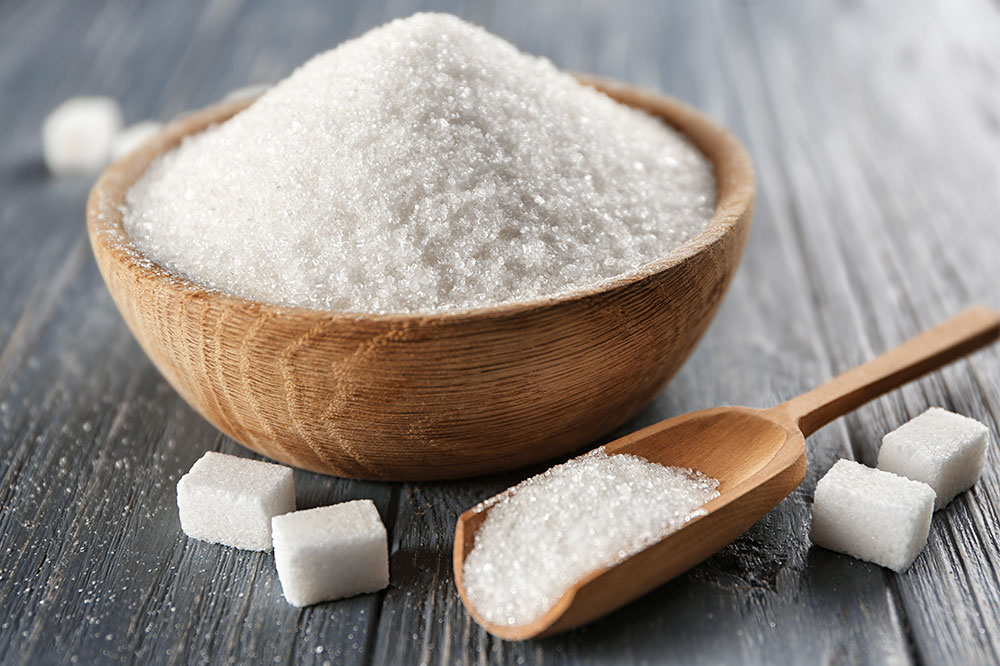Foods to avoid for managing multiple sclerosis symptoms

Multiple sclerosis is a prevalent health condition that affects the central nervous system. It occurs when the immune system destroys the protective covering of the nerve. Health researchers do not know what exactly causes this to happen, but it is often attributed to immune, genetic, and environmental factors. Nutrition also plays an important role. Some foods are said to trigger or worsen the symptoms of multiple sclerosis and lead to complications.
Sugar
Too much sugar can lead to lifestyle disorders like diabetes. It can also cause kidney damage, a rapid heartbeat, vision problems, and other issues. Further, high amounts of sugar may contribute to nerve damage, which is already common in those with multiple sclerosis. Therefore, patients must closely watch their sugar intake and reduce its use in meals to prevent complications. Sometimes, extra sugar can lead to frequent ups and downs in blood sugar levels, increasing fatigue. A few sweet items to avoid are chocolates, candy, cookies, and sweetened beverages. It may take some time to put an end to the craving for these foods, but one must make a conscious effort.
Saturated fats
Foods with saturated fats like beef, pork, palm oil, and full-fat dairy can severely impact neurological health over the years. They are often linked to inflammation and raised levels of bad cholesterol, which can increase the risk of heart attack and stroke in any individual. But since those with multiple sclerosis have a higher risk of cardiovascular problems, they should take additional measures to stay away from saturated fats. These foods are said to make the symptoms severe and may even lead to early death.
Cow’s milk
Cow’s milk has many vitamins, minerals, carbs, and proteins. While these are necessary for the body, it also has an abundance of saturated fats. These fats can stimulate the immune cells, increasing the risk of lesions in the nervous system. Since individuals with multiple sclerosis already suffer from nerve damage, their condition can worsen after drinking cow’s milk. The food item may also trigger inflammation and gastrointestinal problems like bloating and acidity.
Salt
Salty foods like French fries, chips, and pretzels are appetizing. They are the go-to snacks for many to take care of their hunger pangs during the day. However, the sodium or salt in these foods can worsen the symptoms of this neurological condition and increase the number of nerve lesions. And that is not the only downside. Salty foods are linked to high blood pressure and other vascular problems if eaten over long periods. As a result, patients may experience a relapse of symptoms. Since specific ongoing treatments can also lead to salt retention in the body, one can consult a doctor about developing a low-sodium meal plan that works for them. Excessive salt intake can lead to impaired vision, bowel dysfunction, and tingling and numbness.
Processed foods
Processed and packaged items like cookies, frozen meals, and potato chips are readily available on the shelves of supermarkets. They help save time cooking and are also pocket-friendly. But those with neurological disorders should steer clear of these as processed items are full of trans fats, which can aggravate their condition and increase the risk of vascular issues.
Gluten
This is a protein found in wheat products like bread and pasta. Studies have found that individuals with multiple sclerosis are more likely to suffer from gluten intolerance or celiac disease. They may experience episodes of stomach upset and constipation after consuming this element. So, patients must get checked for celiac disease and eliminate foods containing gluten from the meal plan after consulting a doctor.
Besides using doctor-recommended treatments, one can follow these tips to keep their symptoms in check. If a person does not have the disorder, avoiding these foods will lower their chances of developing it in the future.